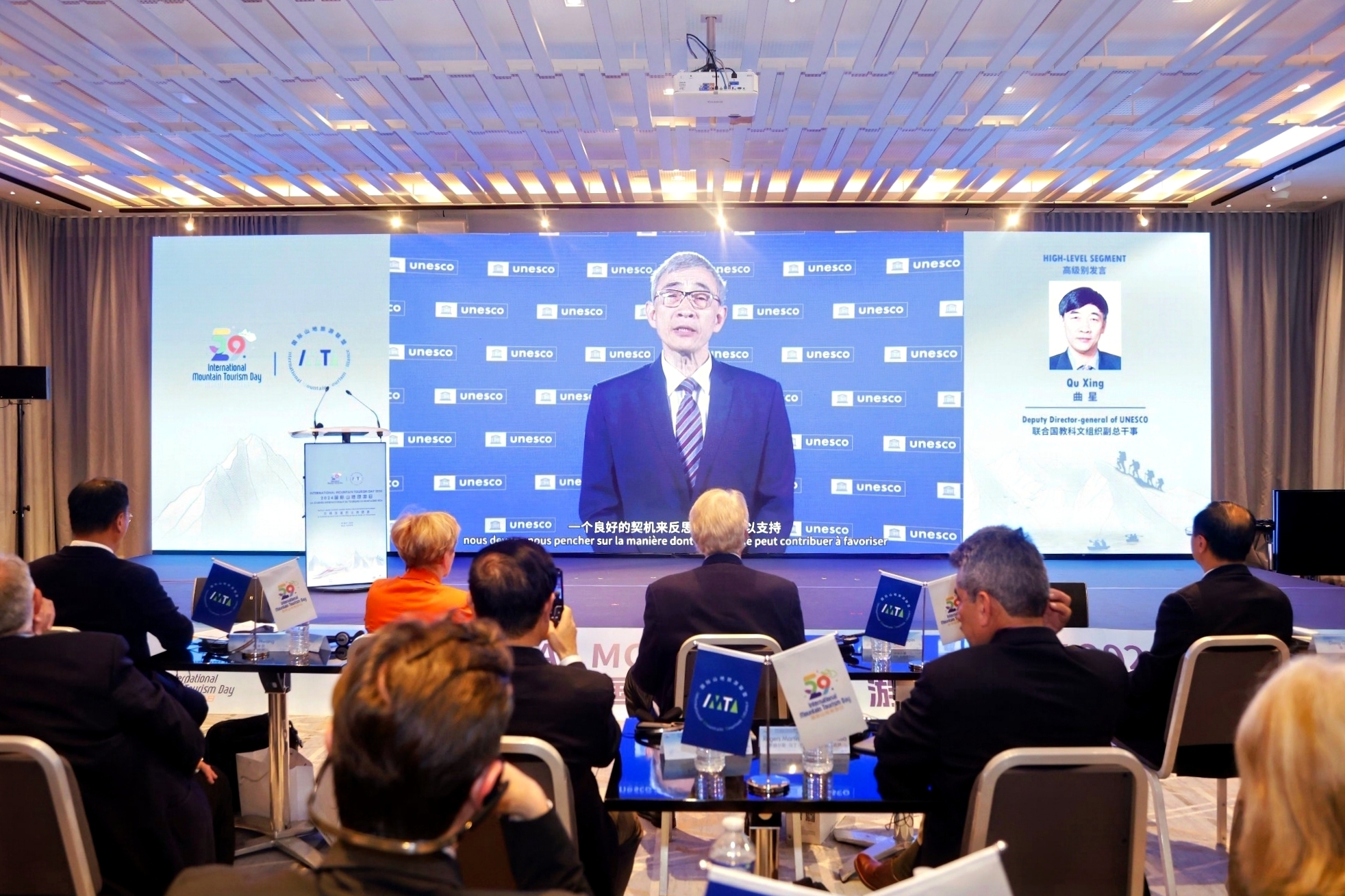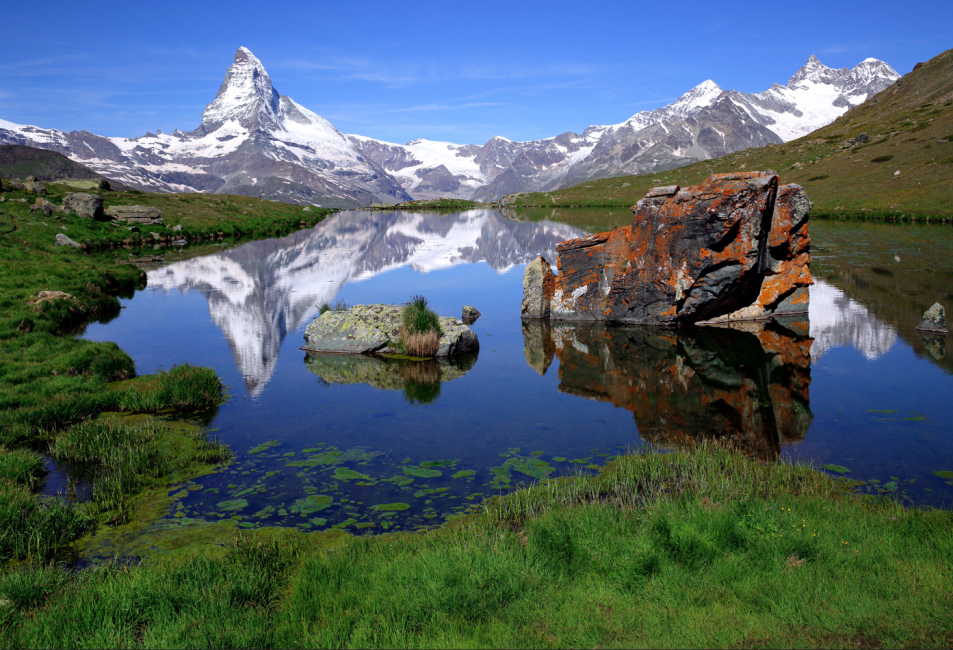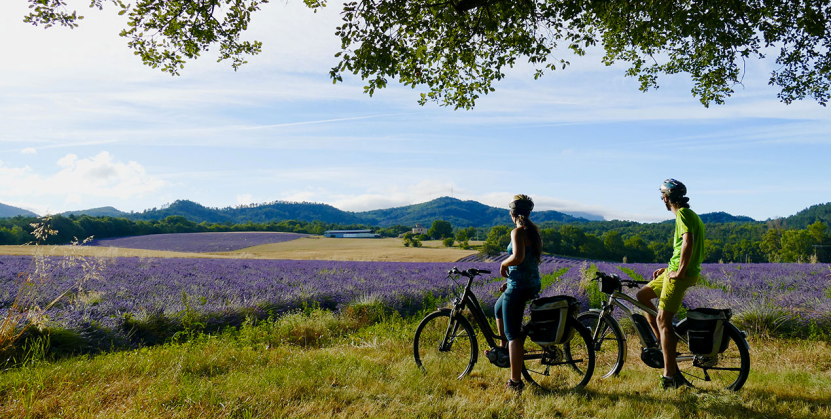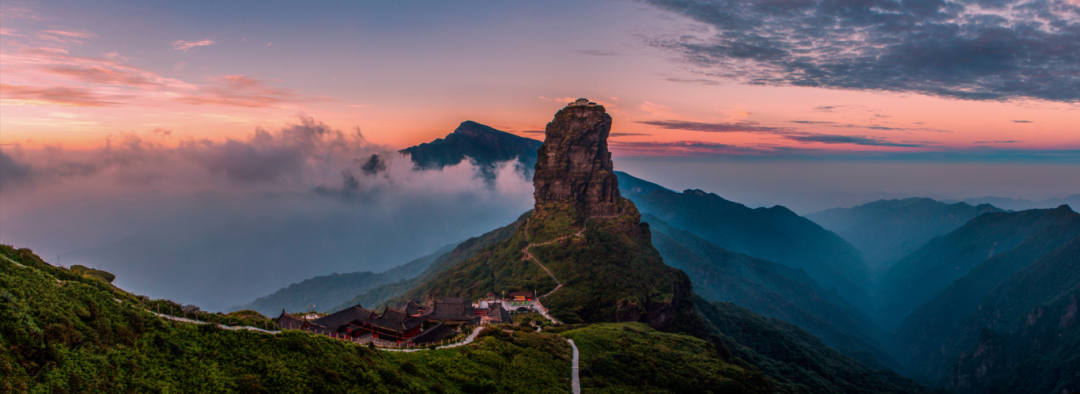Qu Xing: International cooperation builds a better world where mountain tourism is a celebration of nature
On May 29, the "International Mountain Tourism Day (IMTD) 2024" Theme Events were successfully held in Nice, the capital city of the French department of Alpes-Maritimes, France. Representatives of the Chinese Embassy and Consulates in France, the French cultural and tourism authorities, representatives of local government, representatives of international organizations, members of the International Mountain Tourism Alliance (IMTA), tourism agencies, tourism enterprises, industry experts, and media gathered together to discuss and revolve around the theme of "Mutual Understanding among People through Mountain Tourism" and the forum theme "Mountain Tourism Destinations Responding to Climate Change". The rich exchange activities highlight and promote the development concept of mutual learning among civilizations, driving innovation in the "Mountain Tourism+" model.

Qu Xing, Deputy Director-general of UNESCO made a speech in High-level segment.

The following is the full text of the speech:
Mountains are more than just stunning landscapes. They are vital ecosystems that sustain biodiversity and human life. They are also some of the most fragile environments on Earth. Indeed, climate disruption, deforestation and unsustainable tourism practices are already threatening these delicate ecosystems.

Matterhorn in the Swiss Alps
This sixth anniversary of International Mountain Tourism Day is an opportunity to reflect on the ways in which tourism can support the sustainable development and resilience of mountain communities. Because, well-managed tourism can create much needed revenue and jobs in isolated mountain regions. But unsustainable practices can compound environmental degradation, loss of cultural identity and economic disparities. For this reason, at UNESCO, we are committed to supporting tourism that is inclusive, respectful, and regenerative. And we put this approach to work in all our UNESCO protected areas. In these living laboratories, we develop innovative strategies to protect the natural and cultural heritage, while supporting the economic activities of local and indigenous communities. We do this in our Alpine World Heritage Sites, from Machu Picchu to the Himalayas, from New Zealand's Mount Tongariro to the Canadian Rocky Mountains. We also do this in our global Geoparks, for example, in the Haute-Provence Geopark, just 150km from Nice, which was a forerunner in advocating for the protection of the Earth's geological heritage.

Highland Geopark of Provence
Source: Institut Sino-Français de Recherche du Développement Tourisme Montagne
Finally, we do this in our more than 470 biosphere reserves in mountain areas, including the Mount of Fanjingshan in Guizhou, China, and through our World Network of Mountain Biosphere Reserves, which pulls these site's knowledge and experience. Naturally, none of this is possible without international cooperation. That's why UNESCO also works hand in hand with governments, NGOs and the private sector to develop policies and practices ensuring that sustainable tourism truly benefits all.

Fanjing Mountain in China
Let me thank the International Mountain Tourism Alliance, the Global Tourism Economy Forum, the World Tourism Cities Federation and the Pacific Asia Travel Association for contributing to these efforts, notably by organizing this sixth anniversary celebration. Together, we can build a world where mountain tourism is both a celebration of nature and a testament to our shared commitment to sustainability.
Thank you.
Except for the source image has been annotated
other text and images source: IMTA
Editor Ⅰ: Zhang WenWen
Editor Ⅱ: Wu Dan
Editor Ⅲ: Liu Guosong














